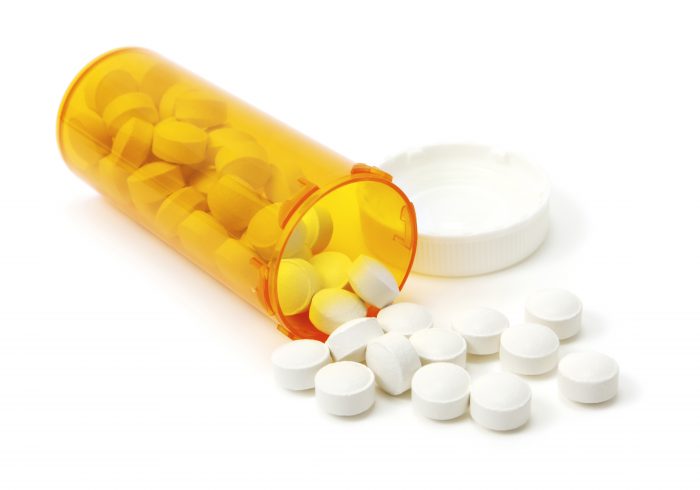Amid excitement over COVID Pfizer pill, local docs urge boosters
When the pandemic first hit Suffolk County in March of 2020, health care providers tried what they could to treat COVID-19.
The treatment options may be on the verge of increasing, as Pfizer recently revealed the benefit of an antiviral pill they developed to treat the virus in its early stages.
The Pfizer pill, called paxlovid, “decreased hospitalization significantly,” said Dr. Bettina Fries, chief of the Division of Infectious Diseases at Stony Brook Medicine. “That’s exciting.”
The Pfizer pill, which would still need Food and Drug Administration authorization before medical care providers can administer it to patients, comes just a few weeks after Merck announced its antiviral pill molnupiravir was effective in treating people who contracted COVID-19.
Indeed, at the end of last week, Britain became the first country to approve the use of molnupiravir for people with underlying medical conditions, including heart disease and obesity.
“There is more information on molnupiravir as this drug was approved in the [United Kingdom] last Thursday,” Dr. Adrian Popp, chair of Infection Control at Huntington Hospital explained in an email. “It will be administered as soon as possible following a positive COVID-19 test and within five days of the onset of symptoms.”
As for Pfizer, it has not yet released data about its clinical trials to the scientific community, which means independent researchers haven’t reviewed the information.
Still, the introduction of new antiviral treatments advances the battle against the virus on another front.
“They are novel medications,” Popp added. “The speed by which they are being developed is amazing.”
Popp added that the pace at which the new Pfizer drug eliminates the virus and its symptoms is unclear because of limited data.
Fries said the Pfizer and Merck drugs were in different classes and worked differently, which means they may be most effective in combination.
In terms of side effects, Fries wouldn’t expect anything dramatic from either treatment.
Taking pills that reduce the severity of the disease also aren’t likely to reduce the body’s natural immunity to the virus.
“The immune system has already seen enough of the virus by the time you take the drug,” Fries said. Some of the patients in the trial probably had the virus for about a week, which is enough time for the immune system to recognize the invader and develop a natural resistance.
The timing of treatment with antiviral drugs determines its effectiveness. Drugs like Tamiflu, which prevents the worst symptoms of the flu, become less effective the longer the virus is in a patient.
“If you give this drug later, it will likely have less effect,” Fries said.
Additionally, Fries cautioned about overusing these drugs in future months and years, which can lead to viral resistance.
Fries believes the virus, like the flu, will continue to stick around and will return in waves.
The authorization of vaccines for children ages five to 11 will likely reduce the threat from the virus.
“A lot of parents will schlep their kids right away, especially before Thanksgiving,” Fries said. “Physicians and people who have a deeper understanding of vaccines feel comfortable” with them.
Fries recently received her third shot.
While the likelihood of children developing the worst symptoms of the disease is low, they contribute to the spread of the virus.
Additionally, the virus can mutate, which could make it “potentially a lot worse. There is [also] a low but potentially significant risk of long covid syndromes,” Fries said. “You don’t want your kid to have that. Children should be super duper healthy, not just a little bit healthy.”
Thanksgiving preparation
In terms of preparing for Thanksgiving, Fries urged everybody over 65 to get a booster, particularly if they received their initial vaccines at least six months ago.
Stony Brook Hospital is admitting patients who have been vaccinated and are over 65, in part because their initial vaccinations were over half a year ago.
“We see more and more older people presenting with the disease again,” Fries added. “Do it now so you have antibodies for Thanksgiving” particularly if a family has children returning from college.
Additionally, Fries urged residents and their families to get tested before coming together, which will reduce the risk of household transmission.
Even though Pfizer and Merck have produced drugs that may improve the treatment of COVID-19, Fries urged people to continue to get vaccinated.
“This kind of drug treatment does not make us say, ‘Okay, you don’t need to get vaccinated,’ Fries said. “Absolutely not.”
Fries noted that those people unwilling to receive an mRNA vaccine might get another option before too long.
The Novavax vaccine has “performed really well” in clinical trials, Fries said. “It is more of a traditional vaccine.” The Novavax facilities have had production problems. Once they resolve those issues, the company could apply for emergency use authorization.







